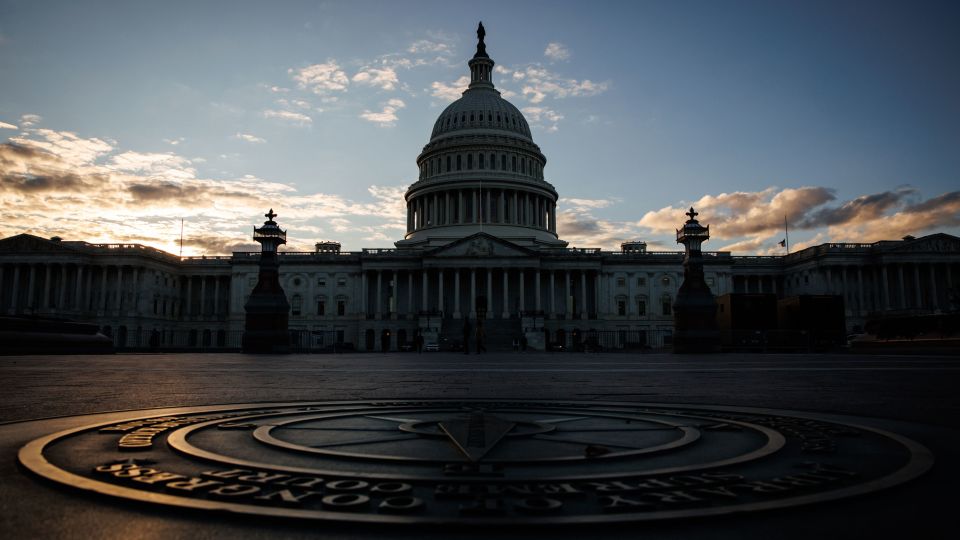
The White House Health Care Plan Faces Immediate Backlash
President Donald Trump has not officially announced his new health care plan, but the proposal has already sparked significant controversy within his own party. The White House delayed its plan to prevent a surge in premiums under the Affordable Care Act (ACA) after facing strong opposition from Republican allies and lawmakers.
The proposed rollout caused immediate concern on Capitol Hill, where many Republicans learned about the plan through leaks rather than official channels. The proposal faced criticism from conservatives who were unhappy with the inclusion of an extension for key ACA subsidies that are set to expire at the end of the year.
Michael Cannon, director of health policy studies at the Cato Institute, expressed disappointment, stating, “What this means is the Republicans will be expanding Obamacare.” This backlash raises doubts about the GOP's ability to unify behind a plan addressing health care costs, despite Trump’s promises of a better alternative to the ACA.
The situation highlights the challenges Congress faces in reaching a bipartisan agreement to avoid rising consumer health costs. Senate Republicans agreed to a mid-December vote on the enhanced ACA subsidies as part of a government funding deal. However, the deadline will be just days away when senators return from their Thanksgiving recess.
Over 22 million Americans benefit from the enhanced ACA subsidies, and they could face steep premium increases if these tax credits expire at the end of the year. This issue has become a focal point for both Democrats and Republicans, especially ahead of the midterm elections, which are expected to be influenced by voters' concerns about the cost of living.
A White House adviser noted, “The White House understands they have to do something on this, as bad as Obamacare is.” The tentative package proposed by the administration aimed to extend the ACA subsidies for two years while implementing conservative reforms, such as income caps and minimum monthly premium payments.
The framework also sought to encourage enrollees to choose lower-tier ACA plans by allowing them to redirect federal aid into health savings accounts. This approach aligns with Trump’s goal of giving more money directly to individuals rather than through insurance companies.
Other elements of the proposal included expanding access to non-ACA plans and imposing restrictions on federal funds for gender-affirming care or health care for undocumented immigrants.
Republican Lawmakers React to the Framework
Many Republican lawmakers found out about the framework through social media, leading to confusion and frustration. In the House, where Obamacare remains a sensitive topic, the proposal was met with skepticism, as key details remained unclear. There is little expectation that the plan, which includes a two-year extension of subsidies, would gain support from House Republicans.
Some conservatives viewed the framework as a departure from the principles the White House had previously communicated. A former senior administration official described it as “not very Trumpian.”
A White House official denied that the administration had finalized its health plan, stating that any reporting about the healthcare positions is speculative until President Trump makes an official announcement. The official also mentioned that the White House had not scheduled any formal announcement, though some lawmakers had been briefed on the plans.
White House press secretary Karoline Leavitt declined to provide a new timeline, saying only that Trump is focused on unveiling a health care proposal that will fix the system and lower costs for consumers.
Bipartisan Challenges and Political Divisions
Despite the challenges, the framework received some praise from a few Democrats, including Senators Jeanne Shaheen, Maggie Hassan, and Jacky Rosen. They expressed hope that the proposal could lead to bipartisan support.
However, most congressional Democrats rejected the plan, favoring a straightforward extension of the ACA subsidies. Senator Ron Wyden of Oregon criticized Republicans for retreating into ideological crusades instead of working with Democrats to lower health care costs.
Within Trump’s circle, some allies pointed to the divisions within the Republican Party as evidence of the difficulty in creating a successful health plan. Experts like Michael Cannon argue that overhauling the ACA is no longer viable, as anything proposed by Republicans is often seen as undermining Obamacare.
Despite these challenges, Trump remains determined to achieve a sweeping health care deal. Advisers believe that offering more choices and making health care more affordable could resonate with voters heading into the midterms.